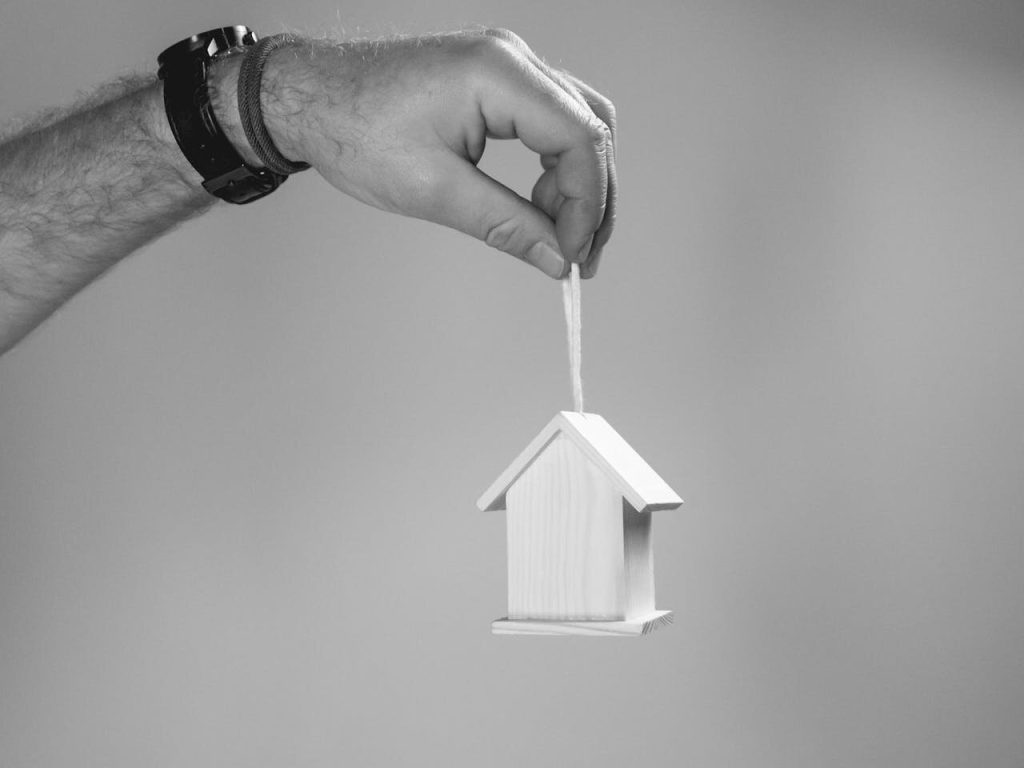Step 1: Understand the San Francisco Real Estate Market
Selling a home in San Francisco requires a deep understanding of the local real estate market. Home prices here are known for their highs and lows, often influenced by factors like the tech industry, interest rates, and even the latest housing policies. To navigate this, it’s essential to stay on top of current trends.
Timing your sale is also crucial. San Francisco’s market tends to be more active during the spring and summer months when buyers are out in full force. Homes often sell faster and for higher prices during these peak seasons. However, if you’re selling in the off-season, don’t worry—serious buyers are still out there, and they might even prefer to avoid the competition of a busy market.
Local market conditions, such as the frequency of bidding wars, can significantly impact your selling strategy. In some neighborhoods, a well-priced home can quickly spark a bidding war, driving up the final sale price.
Expert Insight: According to J. Lennox Scott, CEO of John L. Scott Real Estate, understanding the critical components of a successful home sale involves focusing on key factors such as the right pricing, effective marketing, and timing your sale appropriately. Scott, with his extensive experience leading a major real estate firm, emphasizes that mastering these elements is crucial for achieving the best outcome when selling your home, especially in a competitive market like San Francisco.
Step 2: Price Your Home Accurately
Pricing your home accurately is crucial in San Francisco's competitive market. It all starts with conducting a Comparative Market Analysis (CMA). A CMA helps you understand what similar homes in your area have recently sold for, giving you a solid foundation to set a realistic price.
This isn’t just about numbers; it’s about understanding your home's value in the eyes of potential buyers. Overpricing, for instance, can be a costly mistake. I once heard about a homeowner who priced their property too high, thinking it would leave room for negotiation. Instead, the home sat on the market for months, eventually selling for less than it might have if priced correctly from the start.
In a city where buyers are savvy and well-informed, setting the right price from day one can mean the difference between a quick sale and a prolonged, stressful process.
Step 3: Prepare Your Home for Sale
Preparing your home for sale is about making it as appealing as possible to potential buyers. Start with decluttering—clear out personal items to create a more open and inviting space. Take care of minor repairs like fixing leaky faucets or patching up paint. If you want to make a big impact, consider professional staging to showcase your home’s best features.
High-quality real estate photography is equally important. Since most buyers will first see your home online, professional photos can make a strong first impression, highlighting the space and character in a way that simple snapshots can’t.
Here’s a quick checklist:
- Declutter and depersonalize: Open up the space.
- Complete minor repairs: Remove distractions.
- Consider professional staging: Maximize appeal.
- Invest in professional photography: Capture your home at its best.
Step 4: Navigate Legal and Compliance Requirements
Selling a home in San Francisco means navigating a maze of legal and compliance requirements. One key aspect is the seller disclosure obligations. You’ll need to be upfront about any known issues with the property, from past repairs to structural concerns. This transparency isn’t just about following the rules—it helps build trust with potential buyers.
Local Regulations: Beyond disclosures, San Francisco has specific regulations, such as meeting energy and water efficiency standards. Skipping these can lead to delays or even fines during the selling process. A homeowner once realized that a quick check on these regulations saved them from a costly last-minute upgrade, ensuring a smooth sale. Staying on top of these requirements not only protects you legally but also makes the selling process far less stressful.
Step 5: Market Your Property Effectively
To sell your home in San Francisco, you need a marketing strategy that works both online and offline. Tailoring your approach to this unique market can make all the difference. Start with online listings—your home should be featured on major real estate platforms with compelling descriptions and professional photos. Offline, consider hosting open houses or distributing high-quality brochures in your neighborhood to catch the attention of locals who might be interested or know someone who is.
Social media is also a powerful tool. By showcasing your home on platforms like Instagram and Facebook, you can reach a broader audience. A homeowner once posted a virtual tour on social media, and within days, the post had garnered significant interest, leading to several showings. Combining these strategies ensures your property gets the visibility it needs to attract the right buyers quickly.
Step 6: Managing Offers and Negotiations
In San Francisco’s competitive market, managing offers can be a balancing act, especially during bidding wars. When you receive multiple offers, it’s important to look beyond the highest bid. Consider factors like the buyer’s financing, contingencies, and timeline for closing. A seller once received several offers and found that the highest wasn’t the best fit due to the buyer’s uncertain financing. They opted for a slightly lower offer with solid backing, leading to a smoother transaction.
Your real estate agent plays a crucial role in this process. They’ll help you evaluate each offer, guide you through counter-offers, and negotiate terms that best suit your needs. Here’s how they can assist:
- Evaluating offers: Looking at more than just the price.
- Negotiating terms: Ensuring you get the best possible deal.
- Handling counter-offers: Strategically responding to buyer requests.
Step 7: Closing the Deal
Closing the deal is the final stretch in selling your home, and understanding the escrow process in San Francisco is key. During escrow, a neutral third party holds all the funds and documents until both buyer and seller meet their obligations. This step ensures that everything is in order before the property officially changes hands.
As you approach closing, be prepared for the associated costs. These can include fees for the title search, escrow services, and transfer taxes. A seller once learned that being proactive about understanding these expenses saved them from last-minute surprises. Knowing what to expect can make this stage smoother and less stressful.
Final Checklist:
- Escrow process: Ensures all conditions are met before the sale is finalized.
- Closing costs: Be aware of fees like title search, escrow, and transfer taxes.
- Final steps: Clear communication with your agent can help wrap things up efficiently.

The Alternative Option: Selling Your Home to Cash Buyers
Cash home buyers offer a streamlined alternative to the traditional home-selling process. These buyers have the funds readily available to purchase your home directly, bypassing many of the common hurdles associated with selling a property, such as dealing with banks for loan approvals. If you're considering selling your home in San Francisco, opting for a cash buyer can be especially beneficial.
Key Benefits of Opting for Cash Buyers:
- Speed: Transactions with cash buyers like John Buys Bay Area Houses can close much faster than conventional sales. Without the need for mortgage approvals, the selling process can often be completed in just a few weeks.
- Convenience: Cash sales are typically 'as is,' meaning you won’t need to worry about repairs or renovations to prepare your home for sale.
- Certainty: With a cash offer, you bypass the uncertainty that comes with potential buyers who might fall through due to financing issues.
Consider the experience of Yolanda Dixon, who was initially apprehensive about selling her home: “Two weeks ago I got a call from John. At first, I was really scared to sell my house but John was so professional. He gave me an amazing offer in less than 7 minutes! I sold the house faster than I expected. Thank you, highly recommend!” This story underscores not just the efficiency but also the personal touch and professionalism that John from John Buys Bay Area Houses brings to the table, making the emotionally charged process of selling a home much smoother and more comfortable for homeowners.
Conclusion
Selling a home in San Francisco doesn’t have to be stressful. By understanding the local market, pricing your home right, and preparing it well, you can make the process smoother and more successful. Whether you choose the traditional route or opt for the ease of selling to a cash buyer like John Buys Bay Area Houses, the key is to stay informed, take action, and keep your eye on the prize. This isn’t just a transaction—it’s a big step forward in your life. So take a deep breath, and let’s make it happen.
FAQs about Selling a Home in San Francisco
What is the best time to sell a home in San Francisco?
The best time to sell is typically in the spring and summer. Buyers are more active, and homes often sell faster and for higher prices during these seasons.
How can I accurately price my San Francisco home?
Conduct a Comparative Market Analysis (CMA). This will help you set a price based on recent sales of similar homes in your area.
What are the key legal requirements for selling a home in San Francisco?
You must comply with seller disclosure laws and meet local regulations, such as energy and water efficiency standards. Being transparent and meeting these requirements can prevent legal issues.
How can I make my home stand out in a competitive market?
Consider professional staging and high-quality photography. A well-presented home can attract more buyers and lead to a quicker sale.
How can cash home buyers speed up the selling process?
Cash buyers purchase homes quickly, often within days. There’s no need for repairs, staging, or waiting for financing, making it an ideal option for those needing to sell fast.



